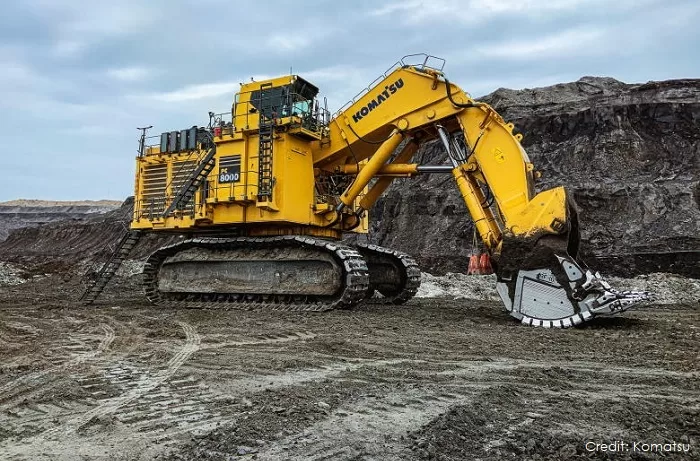Auto
How Electric Vehicles Are Changing Multiple Industries

- Electric vehicles (EVs) are revolutionizing multiple industries beyond personal transportation, including aviation, rail, and mining.
- Innovations in electric aviation, such as eVTOL aircraft, and electric trains are addressing challenges in energy density and infrastructure, with significant investments from major companies.
- The success of the electric revolution relies on renewable energy sources and advancements in energy storage, making a cleaner, sustainable future increasingly attainable.
Electric vehicles (EVs) are no longer limited to personal mobility; they are making waves in a variety of industries, including aviation and heavy machinery. As the worldwide movement for sustainability takes traction, electric technology is proving to be both innovative and challenging, transforming industries that were previously thought to be too complex or energy-intensive to electrify.
Take Flight: The Future of Electric Aviation
The aviation industry, known for its carbon impact, is undergoing a huge shift as electric planes gain popularity. Companies like Lilium, Archer Aviation, and Joby Aviation are pioneering electric vertical takeoff and landing (eVTOL) aircraft. These novel machines are intended for short-haul flights and urban air mobility, promising a future in which air travel is quieter, cleaner, and more efficient.
However, the path to electric aircraft is not without hurdles. The most significant challenge is energy density—airplane batteries must store massive quantities of energy while being lightweight. This challenge is being addressed by major industry companies such as Rolls-Royce and Airbus, with Airbus developing the “ZEROe” hydrogen-powered aircraft as a step toward zero-emission flights. Despite these challenges, advances in this sector indicate that electric aircraft may soon become a reality, particularly for short-distance travel.
Electrifying Rails: The Green Train Revolution
Trains have long been a more ecological means of transportation than cars and planes, although many still run on diesel or coal. The transition to electric trains is an important part of the green revolution in transportation. Leading the drive are businesses like Siemens Mobility and Bombardier, who are building cutting-edge electric trains like the Velaro Novo and Aventra.
Countries around the world, including Germany, France, and Japan, are making significant investments in updating their rail networks to accommodate these electric trains. Despite the high initial expenditures, the long-term benefits—lower operating costs, less emissions, and increased energy efficiency—make this investment worthwhile. As electric trains become more common, they will play an important part in lowering the carbon footprint of mass transit.
Mining Turns Green: The Rise of Electric Heavy Machinery
The mining industry, which is well-known for its environmental impact, is also starting to use electric technologies. Caterpillar, Komatsu, and Epiroc are among the companies that are developing electric mining equipment, such as excavators, loaders, and haul trucks. These machines outperform diesel engines in terms of noise, efficiency, and pollution.
A prime example is Komatsu’s PC8000-11, one of the world’s largest electric excavators. Despite its vast size, this machine emits 95% fewer emissions when powered by clean energy sources. However, powering such large gear remains difficult due to the limitations of present battery technology. To address this, firms such as ABB and Siemens are developing infrastructure solutions that often connect these equipment to power sources via cables.
Powering the Revolution: The Role of Renewable Energy
The viability of the electric revolution is highly dependent on the availability of clean, renewable energy. As the number of electric vehicles increases, so will the demand for renewable energy sources. Solar and wind power are at the vanguard of this revolution, with Tesla, through its SolarCity company, and Vestas, a wind energy pioneer, leading the way.
The integration of renewable energy into the electric grid presents obstacles, particularly in terms of intermittency and storage. Companies such as Tesla (Powerwall and Powerpack) and Siemens (advanced battery storage technologies) are crucial in tackling these concerns. As these technologies advance, the electric grid will become more resilient and capable of supporting the mass use of electric vehicles.
The Future Beyond Cars: Increasing the Scope of Electric Power
The electric revolution is fast moving beyond personal automobiles to include some of the largest and most complicated devices ever created. Electric power has numerous applications, including electric planes and trains, large excavators, and even ships. For example, Maersk is looking into battery-powered ships, and Nissan is experimenting with electrification in maritime applications.
Each of these sectors faces unique problems, especially in terms of energy density and infrastructure. However, advances in energy storage, spearheaded by businesses like Panasonic and LG Chem, provide hope that even these energy-intensive industries may eventually switch to electric power.
Embrace a Sustainable Future
The electric revolution is more than just a change in how we drive; it is a rethinking of how we power our world in many areas. Companies like Tesla, Siemens, Lilium, and Caterpillar are setting the standard, pushing the limits of what is possible. As we continue to embrace electric vehicles and invest in renewable energy, we will pave the road for a cleaner, more sustainable future. The path may be difficult, but the potential rewards—significantly lower greenhouse gas emissions and a healthier planet—make it worth it.

















































